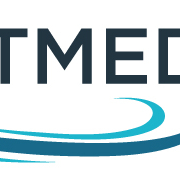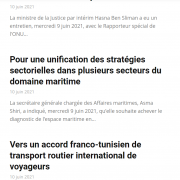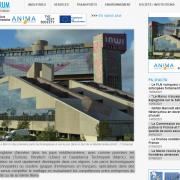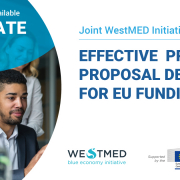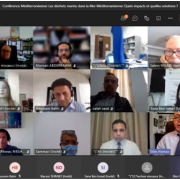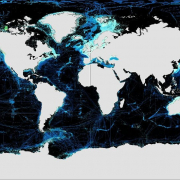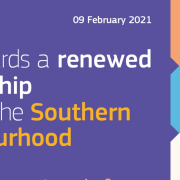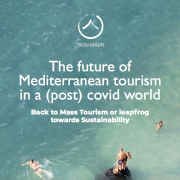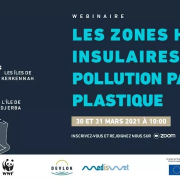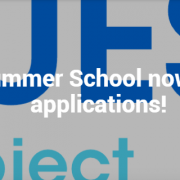The WestMED Maritime Cluster Alliance helps pave the way for establishing a Mauritanian Maritime Cluster
In the framework of the activities of the WestMED Maritime Clusters Alliance, and thanks to the organization of the WestMED Mauritanian National Coordinator and National Hub, the first event aimed at the establishment of a Maritime Cluster in Mauritania, has shown the importance of such a process in the growth and consolidation of local ecosystems for the Blue Economy and beyond.
Taking inspiration from the good practices from Tunisia, with its CMT (Cluster Maritime Tunisien), the participation of the Secretary General of the Union of Arab Maghreb and the President of the Central African Francophone Maritime Cluster (together with the main European networks of maritime clusters – ENMC, ECA), well represents the significance of a joint undertaking of the same challenge at regional level.
Countries where this process is at its early stage, find a strong support in this common effort and the requests expressed by the Mauritanian actors, during the networking session, have clearly underlined the need for support: institutional anchoring, sustainable model for clusters establishment and development, financial resources to encourage research &i nnovation, progressive inclusion of local ecosystems in European supply chains (towards Euro-Mediterranean ones).
The WestMED Maritime Clusters Alliance, through its inclusive activities, is going to ensure and facilitate suitable answers to this capacity building demand, within South-South and also North-South through actions/partnerships/projects.
The next event related to this topic, during event during the SEAFUTURE 2021, will mark another step of this ongoing process, in the same direction.
More information
Contact the National Hub Italy for more information

